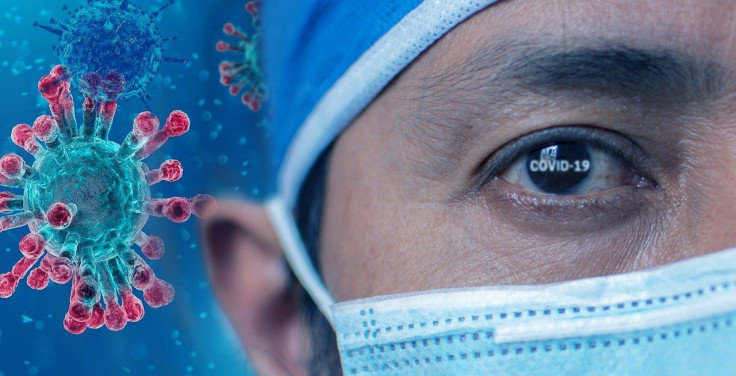COVID-19 Update: Study Says Coronavirus May Also Cause Brain Damage

KEY POINTS
- Coronavirus is known to affect the respiratory system
- Recent studies show that it may also cause damage to the brain
- Case studies have found a link between COVID-19 and some neurological disorders
As the confirmed cases of COVID-19 worldwide reach 2,083,304, doctors are starting to see symptoms not included in the list of typical symptoms announced by the CDC. According to the health body, typical coronavirus infection symptoms include continuous cough, high temperature, and shortness of breathing.
Some of its lesser-known symptoms include body ache, nausea, stomachache, and malaise. Recently, doctors have observed patients experiencing symptoms like hallucinations and seizures, as well as the loss of taste and smell. According to scientists, this indicates the virus may also attack the brain.
A Mounting Evidence
COVID-19 pandemic has become one of the most serious health crisis ever faced by modern civilization. The rapid spread of the deadly disease, which causes a series of complications often linked to the human respiratory system, has shocked scientists all over the world. The scientific community has so far been focused on the adverse effects that Sars-CoV-2, the virus that causes COVID-19, has on the respiratory system. There is mounting evidence; however, that indicates Sars-CoV-2 may also be attacking the brain.
In the past few weeks, case studies have found a link between Sars-CoV-2 and some neurological problems. Scientists say that, for instance, loss of smell or taste, an indication of likely neurological issues, is rapidly emerging as a COVID-19 symptom, the ailment caused by Sars-CoV-2. It is also being reported that some COVID-19 patients are experiencing brain-related symptoms like headaches. These new and emerging symptoms underscore just how little is known about the virus.
An Inflamed Brain
In the United States, where confirmed cases of COVID-19 have reached 644,089 as of posting, doctors reported an unusual case of a coronavirus-positive female patient. According to the doctors, the woman in her late 50s and working in an airline company was admitted to a hospital after experiencing body ache, fever, and cough. She was tested and later found to be COVID-19 positive.
The patient, however, started to experience another set of symptoms, namely, lethargy, disorientation, and confusion, prompting her doctors to perform imaging tests, which reveal some damage to the brain. The doctors then diagnosed the patient with acute necrotizing encephalopathy or ANE, a rare type of inflammation to the brain, often seen in young children. The patient received appropriate treatment.
The First Case
In their report, the doctors said that to their knowledge, this was the first case of Sars-CoV-2 being linked to ANE. The doctors recommended that other health experts should be on the lookout for “this presentation [of ANE] among patients presenting with COVID-19 and [an] altered mental status.”
In other studies, Chinese doctors have reported that a 61-year-old woman experienced severe fatigue and weakness in her legs. The woman has tested positive for COVID-19, but except for weakness and fatigue, she did not exhibit any typical symptoms of the disease during the initial stages.
While in the hospital, her condition deteriorated, and she started to lose strength in both her arms and legs. After performing tests, doctors found her with Guillain-Barré syndrome, a neurological illness that causes the body’s immune system to attack its nerves. The doctors published their case report in The Lancet. They speculated that “Sars-CoV-2 infection might have been responsible for the development of Guillain-Barré syndrome.”
Not Entirely Novel
While it does appear frightening, the idea that Sars-CoV-2 can attack the brain is not entirely novel. Past researches on the close cousins of Sars-CoV-2, the original Sars-CoV, and the MERS-CoV can attack and infect the brain and the spinal cord.
Scientists, however, say that although there have been cases indicating links between Sars-CoV-2 and neurological disorders, this does not mean getting infected also means exposing the brain to an attack. Health experts and medical researchers say that at the moment, there is no conclusive evidence that proves Sars-CoV-2 is infecting human brains. According to these health experts and scientists, more studies need to be conducted on the matter.
© Copyright IBTimes 2025. All rights reserved.





















